Game Over?
Back to Contents of Issue: June 2003
|
|
|
|
by Leo Lewis |
|
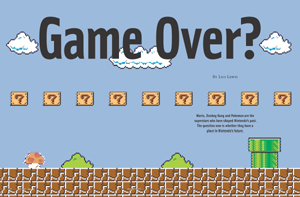 LAST MARCH IN TOKYO, Nintendo launched on its domestic market the brand new GameBoy Advance SP: a powerful games machine that, unlike its predecessors, has a self-illuminating screen. Japanese recession or not, the masses swooped on every store that stocked the JPY12,500 machines, and by late afternoon every one of the 300,000 units had been sold. LAST MARCH IN TOKYO, Nintendo launched on its domestic market the brand new GameBoy Advance SP: a powerful games machine that, unlike its predecessors, has a self-illuminating screen. Japanese recession or not, the masses swooped on every store that stocked the JPY12,500 machines, and by late afternoon every one of the 300,000 units had been sold.
While this does not sound like the performance of a company in trouble, Nintendo has headaches that cannot be cured simply by shifting large numbers of machines. The modern games business, soon to be worth an estimated $50 billion a year, is as much about the licenses on the third-party software as the consoles themselves, and Nintendo has some tough decisions to make in coming months. Those decisions became even more focused in April when Nintendo hit investors with a huge downgrade to profit forecasts. The battle with its two rivals Sony and Microsoft was not going well. To make matters worse, Microsoft followed up the announcement by unveiling a price cut to its Xbox consoles that effectively forced the other two to make cuts of their own. The hardware part of the equation has always worked on the thinnest of margins, and the analysts believe it might now have been pushed over the edge. In the case of Nintendo, there are serious questions over whether it has the muscle required to stay in the hardware business. Sony and Nintendo expect the current The companies themselves have begun to admit that things are bleak. Senior executives from both Sony and Nintendo have told J@pan Inc that they expect the current "console war" to take at least one hardware company out of the market.
But the three console producers have so far been resolute that they intend to stay in the market. Both Sony and Microsoft have let it be known to the games community that they are planning, respectively, a PlayStation3 and an Xbox 2. Nintendo has merely confirmed its absolute intention to stay in the hardware business. Of all the markets around the world, Europe is seen as the critical one. Although revenues from the US and Japan are greater, Britain and the Continent are growing at the fastest rate. The battle has been significantly stepped up recently as each console maker has attempted to set itself apart from its rivals. Given that the majority of games now appear in all three formats, both Sony and Nintendo confirm that they are looking for the so-called "killer application" that would make their machine a must-have item. For Sony, the strategy has been to flood the market with choice. As a company source explained, "The new gamer is not interested in sticking to one type of game, any more than cinema-goers like only one genre of film. People have become portfolio players, and dip into different games at different times. Sony has made the PlayStation2 a programmers' machine to encourage more range." Microsoft, meanwhile, has played much more on the future of on-line gaming. Already launched in the US, Xbox Live! is about to hit the UK, bringing with it the first online console gaming. The move is seen as a considerable gamble, given that the whole concept of online games -- playing against opponents anywhere in the world -- has yet to be properly proven. Nintendo's GameCube, the only machine of the three that has no DVD or multimedia capability, is relying heavily on its slogan of "24 hour gaming." Via its GameBoy machine, Nintendo has consistently touted the idea of a seamless link between games played at home and their continuation on the handheld device. "We're not Sony or Microsoft, nor do we want to be," said Nintendo's UK chief executive David Gosen.
Gosen is open about his company's pressing need to meet the new market head on, but he firmly believes that despite the speed of change over the past two years, Nintendo is heading in the right direction. Because the surging market size is due to more adults buying games, independent software makers have increasingly started pitching their content to an older audience. Grand Theft Auto: Vice City, a British-made game that includes graphic violence, is currently at the top of the games charts and one of many gore-soaked new titles that carry an "18" certificate. After years of presiding over cartoon-style heroes like Mario and Pokemon, Nintendo has now licensed a third party adult title for its console. "Resident Evil shows that we are prepared to stretch the brand," says Gosen. "This company has its own brand's family values to protect but no way is it going to be a censor if that is the way the wider industry is taking the software."
But that direction could turn out to be more than Nintendo can readily stomach. Software veteran Acclaim recently launched "BMX XXX" onto a market unused to the phenomenon of games that combine sports simulations with porn. To counter the suggestion that Nintendo isn't ready to grow up, Gosen cites company history: "Nintendo has a constant style but keeps getting reborn, and here we are at one of those stages again. This is a company that started life selling playing cards and now sells high technology around the world. Believe me: This is a management that is comfortable with the idea of innovating into new markets." In fact, Gosen sees the biggest risk for the industry as being that games will gradually "dumb down" to suit an older audience that does not have the time to play for long continuous stretches. "This is a company that started life By far the biggest shadow looming over Nintendo is the one cast by Sega, its old Japanese rival. In 2000, Sega was eventually forced to pull out of the hardware market and has struggled ever since. Now a regular subject of takeover rumors, Sega was the first to buckle under the pressure from the global success of Sony's PlayStation machines. Gosen, along with every other Nintendo manager, strenuously denies that Nintendo may have to exit the hardware business. "Nintendo is about the games, and the reason we are absolutely committed to the hardware is because we need to dictate the terms of the machinery that we make our games on." But projected sales figures do not paint a happy picture for Nintendo. Japanese sales over Christmas fell below expectations and have forced Satoru Iwata, the group's global chief executive, to make a decision that was previously unthinkable. After years of outright resistance to the idea, Nintendo is going to sell its machines into China "by the end of 2003." Widely regarded as the most pirated market in the world, the risk-laden move into China is taken by industry analysts in Japan as a sign of Nintendo's desperate pursuit of sales -- and its desire not to get left behind now that Sony is believed to be planning a similar thrust into China.
|
|
Note: The function "email this page" is currently not supported for this page.


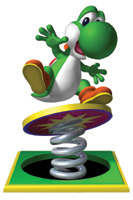 The 30-year history of computer games has witnessed many hard-fought rivalries between software and hardware makers, but it has now moved into a new phase where three major companies are battling for supremacy. Sony, Microsoft and Nintendo each have a games console on the market, and each has a huge amount invested in the success of its machine. The current rankings give a clear lead to Sony, whose Playstation2 stole a march on the others by being launched 18 months earlier. Nintendo's latest sales figures show it has sold just under 7 million of its GameCubes around the world, but industry estimates show Microsoft's Xbox gaining on the Japanese firm at an impressive rate.
The 30-year history of computer games has witnessed many hard-fought rivalries between software and hardware makers, but it has now moved into a new phase where three major companies are battling for supremacy. Sony, Microsoft and Nintendo each have a games console on the market, and each has a huge amount invested in the success of its machine. The current rankings give a clear lead to Sony, whose Playstation2 stole a march on the others by being launched 18 months earlier. Nintendo's latest sales figures show it has sold just under 7 million of its GameCubes around the world, but industry estimates show Microsoft's Xbox gaining on the Japanese firm at an impressive rate.
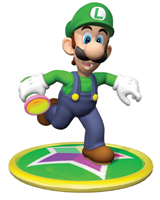 This three-way tussle has in turn provoked a fierce struggle between the major games makers, whose futures depend on exploiting the current environment without exposing themselves too much. Until a loser is declared between the hardware makers, software producers cannot afford not to back all three. As Toshi Nishikawa, a Tokyo-based games analyst explains: "With games development times running into two or three years, and average costs mounting above the JPY900 million mark, games makers are increasingly judged along the same lines as drugs stocks. You look for pipelines and blockbusters."
This three-way tussle has in turn provoked a fierce struggle between the major games makers, whose futures depend on exploiting the current environment without exposing themselves too much. Until a loser is declared between the hardware makers, software producers cannot afford not to back all three. As Toshi Nishikawa, a Tokyo-based games analyst explains: "With games development times running into two or three years, and average costs mounting above the JPY900 million mark, games makers are increasingly judged along the same lines as drugs stocks. You look for pipelines and blockbusters."
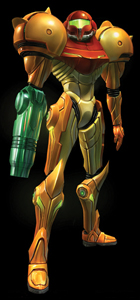 But what Nintendo has over its major competitors, Sony and Microsoft, is a long history of victories in the specifically video games part of the entertainment market. It has also picked up a fan loyalty of which the Rolling Stones would be jealous.
But what Nintendo has over its major competitors, Sony and Microsoft, is a long history of victories in the specifically video games part of the entertainment market. It has also picked up a fan loyalty of which the Rolling Stones would be jealous.
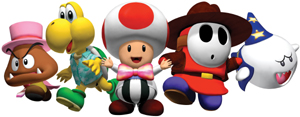
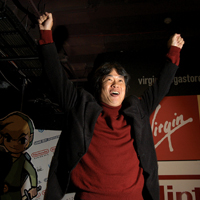 Nintendo's appetite for maturity may take a while to show itself properly. The most visible change so far is that its home-grown games are much harder to master. The company launched its GameCube console into the UK and US markets in early 2002 and swiftly followed this by releasing the latest installment in its best-selling saga, Mario Sunshine. It has taken a lot of veterans by surprise. "It is difficult. No doubt about it," says Shigeru Miyamoto, the famous designer of the Mario series, "but that's because people are becoming better at games. The players have grown up, and the company has to do the same. Mario has been good to the company, but it isn't enough to just give people the same things, even if they did buy millions of them before." @
Nintendo's appetite for maturity may take a while to show itself properly. The most visible change so far is that its home-grown games are much harder to master. The company launched its GameCube console into the UK and US markets in early 2002 and swiftly followed this by releasing the latest installment in its best-selling saga, Mario Sunshine. It has taken a lot of veterans by surprise. "It is difficult. No doubt about it," says Shigeru Miyamoto, the famous designer of the Mario series, "but that's because people are becoming better at games. The players have grown up, and the company has to do the same. Mario has been good to the company, but it isn't enough to just give people the same things, even if they did buy millions of them before." @ 


